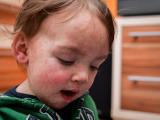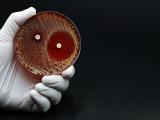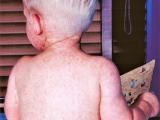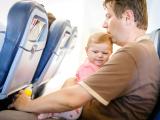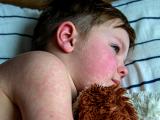Oct 4, 2012
Botulism linked to illicit alcoholic brew hit eight Utah prisoners
A botulism outbreak at the Utah State Prison last year, caused by an illicit alcoholic brew called pruno, sickened eight prisoners and cost the state nearly $500,000 in hospital charges, according to a report today from the US Centers for Disease Control and Prevention (CDC). Prisoners make pruno from fruit, sugar, and water, and sometimes add potatoes or other root vegetables, which may introduce Clostridium botulinum spores, according to an article in Morbidity and Mortality Weekly Report (MWWR). Investigators found that the eight prisoners, who lived close together in a maximum-security unit, all had drunk pruno from the same batch, which included a baked potato, on Sep 30, 2011. All eight were hospitalized, in one case for 58 days, and three needed mechanical ventilation. They were treated with heptavalent botulinum antitoxin, an investigational new drug that is now the mainstay for treating noninfant botulism. "Most of the inmates continued to have various clinical complaints 11 months after the outbreak, including weakness and loss of muscle mass, dysphagia, and reflux," the report says. It says this is the largest US botulism outbreak linked to pruno, and the second largest botulism outbreak in the US since 2006. Prisoners told investigators that pruno is used in prisons nationwide. The episode shows that health departments and prison personnel need to be aware of the link between pruno and botulism and act quickly if they suspect cases, the authors wrote.
Oct 5 MMWR article
Uganda declares end to Ebola outbreak
Uganda's health ministry today announced that the country's Ebola outbreak is over, now that the double maximum 21-day incubation has passed since the last case was confirmed on Aug 3, with the patient discharged from the hospital on Aug 24, according to a World Health Organization (WHO) update. A total of 24 probable and confirmed cases were reported, and 11 were confirmed by the Uganda Virus Research Institute in Entebbe. Seventeen deaths were reported. The outbreak in Kibaale district began at the end of July and involved the Sudan strain of Ebola.
Oct 4 WHO update
Study: Antimicrobial polyurethane may reduce bacteria on keyboards
The use of polyurethane computer keyboard covers containing an antimicrobial polymer called HM 4100 may reduce bacteria, which could help prevent healthcare-associated infections, according to a study today in the American Journal of Infection Control. Researchers tested polyurethane containing 0.5% and 1% HM 4100, and also tested the latter formulation with a spray coating of the antimicrobial at 1% concentration. Test surfaces were coated with suspensions of methicillin-resistant Staphylococcus aureus (MRSA), vancomycin-resistant Enterococcus faecalis (VREF), Escherichia coli, or Pseudomonas aeruginosa, and were then exposed to the polyurethane for various periods. Bacteria levels were reduced in proportion to the exposure time. For example, mean reductions with the 1% HM 4100 at 120 minutes were 99.9% for VREF, 99.9% for MRSA, 99.9% for P aeruginosa, and 99.5% for E coli. The 1% HM 4100 material plus spray coating yielded similar reductions with 30 minutes of exposure. The researchers, from the Special Pathogens Laboratory in Pittsburgh and the University of Pittsburgh, said use of HM 4100 in keyboard covers "may reduce the hand carriage of bacteria between health care providers and patients." The study was partially sponsored by Pittsburgh-based BioSafe Inc, maker of HM 4100.
Oct 4 Am J Infect Control abstract
US rabies case prompts international contract tracing
CDC and California scientists today reported the first known instance of rabies exposure in the United States with symptom onset that occurred abroad after the patient had traveled to several countries, which sparked intensive contract tracing to ensure that those at greatest risk received postexposure prophylaxis (PEP). According to a report in MMWR, the 34-year-old man from California started having symptoms at the end of June in Iraq, where he worked a civilian job. As his condition deteriorated, he was eventually flown to a hospital in Switzerland, where he died on Jul 31 and physicians suspected he had rabies. The follow-up investigation found that he was possibly bitten by a bat in March while in California, and tests on RNA sequences from the patient's serum suggested a link to a bat species common in the southern United States and Mexico. American health officials determined that the patient was infectious to others through saliva and tears 2 weeks before his symptom onset. Contact tracing revealed that, during the 7 weeks, he had been in four states, nine countries, and four medical facilities and had traveled on eight international flights and on two trains. Of 59 contacts identified, 23 received PEP. So far no related infections have been reported. The authors noted that the case highlights the importance of promptly reporting contact with bats or other wildlife and of internal collaboration to identify people who may have been exposed to rabies during international travel.
Oct 5 MMWR report
New South Wales reports spike in measles cases
Australia's New South Wales (NSW) state is experiencing its worst measles outbreak in 14 years, and public health officials have set up clinics to shore up vaccination gaps, especially in young adults, Australian Broadcasting Corporation (ABC) News reported today. According to a statement from the NSW health ministry, the outbreak began in April when young adults returned from traveling overseas. Measles clusters have been detected in Sydney emergency departments, a pediatrics ward, several high schools, and in the community. The highest rates of infection have been seen in children younger than 4 years old, especially those who are too young to be immunized, and in teens ages 15 through 19. People from Pacific Islander and Aboriginal ethnic groups have been disproportionately affected. So far the ministry has received reports of 147 infections, according to its update yesterday.
Oct 4 ABC News story
NSW health ministry measles information
NSW measles case numbers

